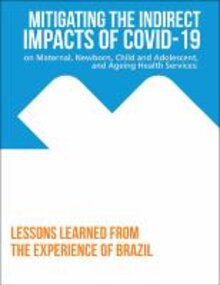The COVID-19 pandemic disrupted daily lives in several dimensions. One of them was the disruption of health services. During the first two years of the pandemic, the rapid increase in severe cases and hospitalizations inevitably led to a greater focus on hospital care and less on non-COVID-19 services, in particular those services provided at the first level of care. The result was a decrease in coverage of critical health interventions. As governments gained more experience in responding to the changes of the pandemic and the knowledge on the transmissibility of the virus and effective control and treatment measures was readily available, national and local actions to ensure the continuity of health services gradually increased, in particular those for women, mothers, children, adolescents and older people. The experience of three municipalities in Brazil provide a special insight from the perspective of the local response to the pandemic. There are several lessons learned on how municipal authorities, program managers, and health care workers were able to find creative ways to keep providing services and support. The rapid increased use of telemedicine, follow-up contacts and counselling by phone or WhatsApp, the expansion of hotlines and the use of social media platforms to disseminate a wide range of health related information, the definition of new roles to community health workers or home visitors, and the increase use of partnerships with a variety of sectors and local actors are few examples of the efforts made to mitigate the effects of the pandemic on health services. After more than two years of pandemic, this is the right time to reflect on those lessons learned and start working on the preparedness for future crisis. This report aims to serve as an input to those discussions within Brazil and in Latin America and the Caribbean.
|

